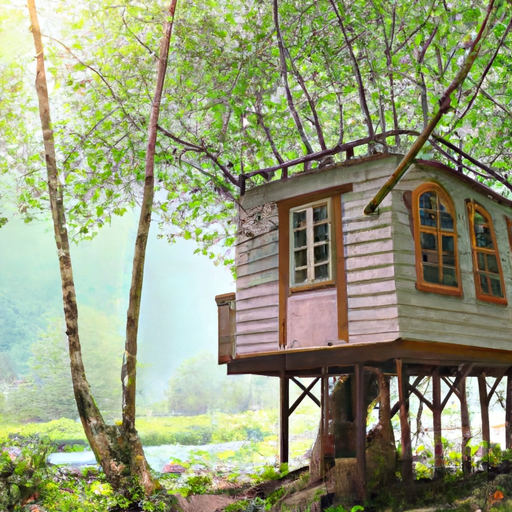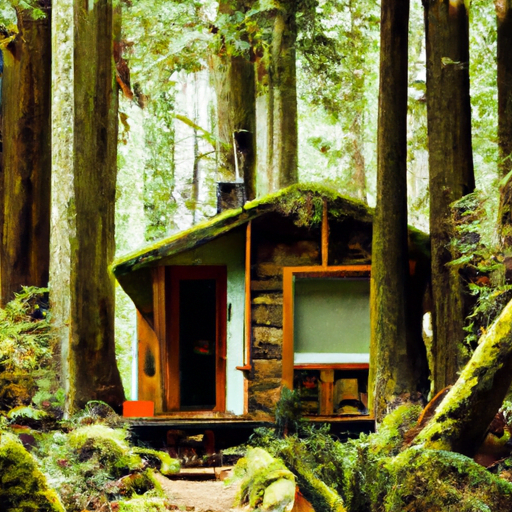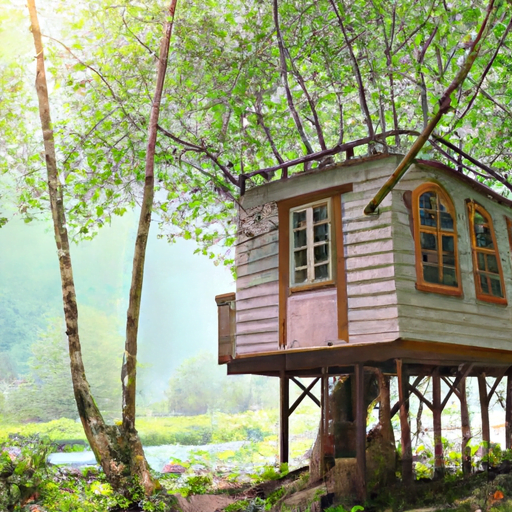Have you ever wondered what it would be like to live off the grid? You know, to disconnect from the hustle and bustle of modern life and embrace a simpler, more self-reliant way of living. Well, if you’re curious about exploring alternative lifestyles, then off grid living might just be what you’re looking for. In this article, we’ll dive into the world of off grid living and explore the various aspects of this unique lifestyle.
So, what exactly is off grid living? Essentially, it’s living without any reliance on public utilities such as electricity, water, and gas. Instead, off grid individuals create their own sources of power, collect rainwater, and utilize alternative methods for heating and cooking. It’s a lifestyle that promotes sustainability, self-sufficiency, and a deep connection with nature.
Now, you might be wondering, how does one actually get off the grid? Well, there are a multitude of ways to achieve this, depending on your goals and resources. From installing solar panels and using composting toilets, to growing your own food and building eco-friendly homes, there are countless paths to off grid living. In the upcoming sections, we’ll explore these options in more detail, providing you with practical tips and inspiration to help you embark on your off grid journey. Stay tuned!
What is Off Grid Living?
Off grid living is a lifestyle choice that involves disconnecting from traditional utility services such as electricity, water, and sewage systems. Instead, individuals who choose to live off grid rely on renewable energy sources, water harvesting and filtration systems, and sustainable waste management methods to meet their daily needs. The concept of off grid living revolves around self-sufficiency and reducing one’s impact on the environment. It offers an alternative way of life that fosters independence, resilience, and a deeper connection with nature.

Essential Factors to Consider for Off Grid Living
When considering off grid living, there are several essential factors that need to be carefully considered. These factors play a crucial role in ensuring a sustainable and comfortable lifestyle.
Choosing the Right Location
One of the most important aspects of off grid living is selecting the right location. It is essential to find a place with adequate sunlight for solar energy generation, access to water sources, and suitable soil for growing food. Additionally, living off grid often means being isolated from urban areas, so it is crucial to consider proximity to essential services like hospitals and schools.
Energy Sources
Off grid living requires alternative energy sources to power appliances, lighting, and other electrical needs. Solar panels are a popular choice for generating electricity, harnessing the power of the sun to charge batteries that store energy for later use. Wind turbines and hydroelectric systems can also be utilized, depending on the location and resources available.
Water Supply and Management
Securing a reliable water supply is another critical aspect of off grid living. This can involve collecting rainwater through harvesting systems, digging wells, or tapping into natural water sources like rivers or springs. Efficient filtration and purification systems are necessary to ensure the water is safe for consumption and everyday use.
Waste Management
Living off grid means taking responsibility for waste management. Composting toilets can be used to transform human waste into fertile soil for gardening, while greywater systems can be implemented to recycle water from sinks and showers for non-potable purposes. Additionally, recycling and repurposing materials is crucial to minimize waste production.
Food Production and Storage
Growing your own food is an essential part of off grid living. Designing and maintaining a thriving garden or permaculture system can provide a sustainable source of fresh fruits, vegetables, and herbs. Proper food storage techniques such as canning, drying, and root cellaring are necessary to ensure a year-round supply of food.

Building a Sustainable Off Grid Home
Building a sustainable off grid home involves careful consideration of design, construction materials, and renewable energy systems.
Design and Construction
When designing an off grid home, it is essential to optimize natural lighting, ventilation, and insulation to minimize energy consumption. Passive solar design techniques can take advantage of the sun’s heat during winter months while keeping the home cool in the summer. Using locally sourced and eco-friendly materials such as reclaimed wood, straw bales, and natural fibers can further reduce the carbon footprint of the home.
Renewable Energy Systems
To power an off grid home, renewable energy systems play a crucial role. Solar panels, wind turbines, and hydroelectric systems are commonly used to generate electricity. Battery banks are used to store excess energy for use during periods of low generation. A backup generator can also be installed as a fail-safe for extended periods of low energy production.
Water Harvesting and Filtration
Water management is vital in an off grid home. Rainwater harvesting systems can collect and store rain for use in toilets, laundry, and irrigation. Filtration systems, such as reverse osmosis or ceramic filters, are utilized to remove impurities and ensure the water is safe for consumption.
Composting and Recycling Systems
Waste management systems are an integral part of sustainable off grid living. Composting toilets allow for the transformation of human waste into nutrient-rich compost, reducing the need for traditional sewage systems. Recycling and reusing materials whenever possible further minimizes waste production.
Choosing Eco-Friendly Materials
In an off grid home, it is essential to choose eco-friendly materials that align with the principles of sustainability. Opting for materials such as bamboo, cork, or natural stone helps reduce the environmental impact of construction. Using low-VOC (volatile organic compound) paints and finishes also contributes to a healthier indoor environment.




